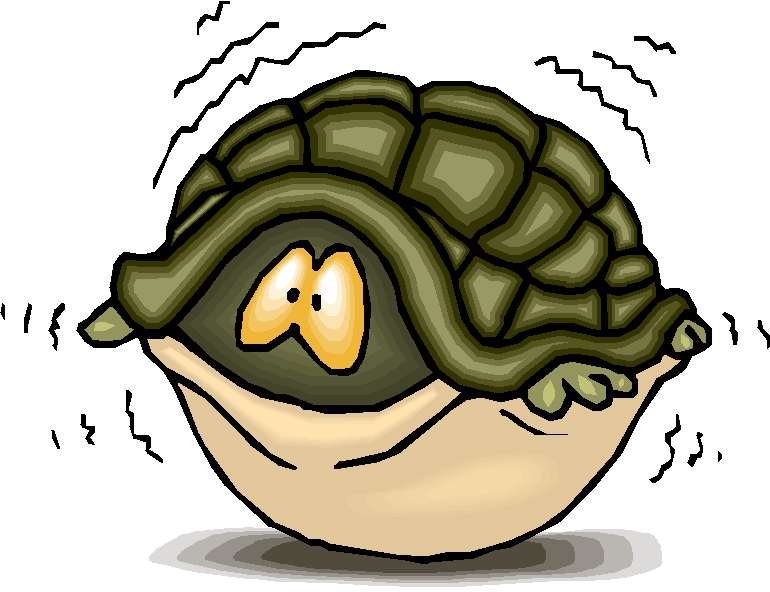Fear of failure is one of the most common fears that limits building confidence and success.
Fear of failure’s a tricky fear though, because it has many faces — some are obvious and some not. Below are nine of the fear of failure faces.
Fear of Failure Face #1: Not Giving 100%
This fear comes from the belief that if you give 100% and fail, then you’re a failure. This is the most devastating form of fear of failure because it seems hopeless, as if you’re permanently flawed. This fear of failure face first occurred to me after talking with a women’s college basketball player. The coach referred her to me because she was extremely talented but horribly underperforming and, therefore, warming the bench. In our first session, she said: “Basketball is my life. All my self-value is wrapped up in it, so if I give 100% and fail, that means I’m a failure. If I don’t give 100%, I have an excuse for why I failed, so I’m not a failure.”
You can correct this type of thinking by reframing your thoughts or changing your beliefs. A reframed thought for this athlete was: “I’m already successful. I’m in college and have a basketball scholarship. I’m ready to give basketball my all and have fun again.”
Fear of Failure Face #2: Procrastination
This is a more obvious fear of failure face. When you’re afraid to fail and you think you might, you put off doing things so you don’t have to face failing. A business leader may procrastinate on implementing a new strategy because she’s afraid it might fail. Or she might put off firing someone for fear that she’ll spend a lot of resources hiring a new person who could be worse. This was true of a CEO of a high-tech firm who had a sales team that was underperforming. His board told her, “One of your weaknesses is you wait too long to make personnel changes.” When she realized and embraced her fear of failure, it lost its power. After that, she made personnel changes quickly when necessary.
Fear of Failure Face #3: Anger
Many triggers can set off anger, and one of them is fear of failure. Instead of dealing directly with your fear, you express it as anger so no one, possibly even you, sees the fear. There’s a good chance you don’t even know you have a fear of failure because the anger quickly covers up the fear. Guys are great at this one, because they shouldn’t be afraid, right?
Anger in this situation is actually a protective response to fear of failure. Fear is the primary emotional response, and anger is the secondary emotional response. Expressing anger won’t resolve the real issue, which is fear of failure. Anger can be an extremely deceptive fear of failure face, because when held in, it festers and is often unleashed on a person or situation having nothing to do with the anger’s original source. If you find the fear and work to resolve it, your anger disappears. This may be more common in men than women.
Fear of Failure Face #4: Crying
There are various reasons people cry, including emotional and physical pain and grief. Most young children cry openly when scared. But for adults, it’s frowned upon. Crying (in private) can be cathartic, but you need to deal directly with the fear rather than using tears to cover it up. This may be more common in women than men.
Fear of Failure Face #5: Rationalizing
This happens every day in sales and relationships. For example, after losing a big deal, the leader or sales rep says, “I didn’t have much of a chance anyway.” Stop deceiving yourself! Stop making excuses. What if you want a new job or a promotion or that really hot guy or gal — will you go all out? Or will you rationalize that you don’t have a chance and either not go for it or give a half-hearted effort? The only way to win big is to play big, play all out and learn from winning and losing. You’ll win big at some point.
Fear of Failure Face #6: Avoidance
Some people avoid putting themselves in situations where they think they could fail. This is a sure way to live your life as an underachiever. Underachievers stay in their comfort zone; facing the possibility of failure is too uncomfortable. Conversely, high performers live and thrive with challenge and discomfort. The possibility of failure motivates them into positive action. Are you avoiding something out of fear of failure? Take the first step in resolving this fear: Identify what you’re avoiding.
Fear of Failure Face #7: Indecision
This is a fairly common fear of failure face. It’s important to remember that indecision is a decision. It’s a decision to not change anything now. It’s an inaction that keeps things the same. High performers and Fearless Leaders™ are good decision makers. Sometimes the decision is to do nothing, but deciding this is an active decision, not a passive lack of action. When indecisive, consider making a conscious decision to either do nothing or to take action — one or the other.
Fear of Failure Face #8: “Nexciting™”
Do you know someone who’s always chasing a new, shiny ball — someone who’s always after the latest “thing,” be it a new idea or a better product or service — before finishing what he already started? Or maybe it’s chasing the next relationship. Going after what’s new and exciting (“nexciting”) can energize you even if you’re not succeeding at anything important. Nexciting is like a drug cover-up for fear of failure. To counter this, consider having strong, positive accountability to follow through on all that’s important.
Fear of Failure Face #9: Withdrawal
There are different levels of withdrawal. A mild form would be similar to procrastination or avoidance. In an extreme case, you could be curled up in bed in the fetal position. If the fear is so big that it immobilizes you emotionally and you withdraw, you may not be ready for the challenge. If this occurs, you have several choices. You can let this challenge go, find someone to do it with you, get help to find the courage to take it on, or develop the skills to be successful. Ultimately, you need to increase your confidence and probability for success. If your withdrawal is severe, consider seeking help from a mental health professional.
Fear of Failure Self-Test
Now that you’re familiar with the nine fear of failure faces, score yourself on this 1 to 5 scale:
- = never/almost never
- = seldom
- = sometimes
- = often
- = always/almost always
Fear of failure affects my personal life. _____
Fear of failure affects my business life. _____ (If the total score of these is greater than 10, you may want to learn to better master your fears.)
Which of the nine faces is most prevalent in you? ____________________
Which of the nine do you notice in others? _________________


